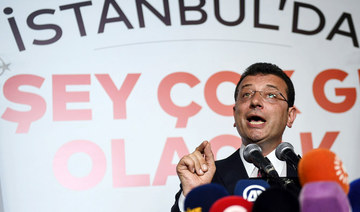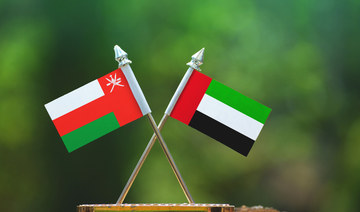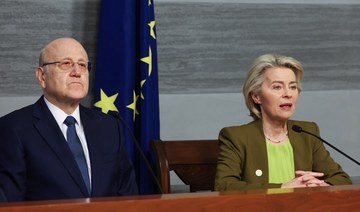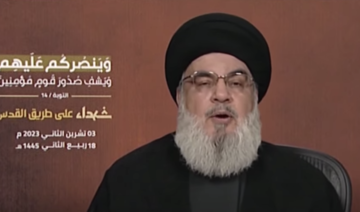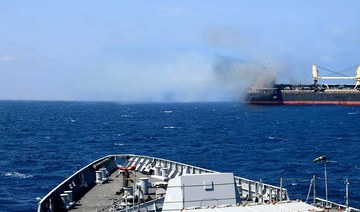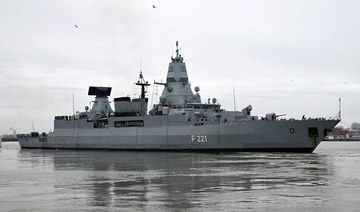ANKARA: The secret behind the latest wave of European visits made by Istanbul’s Mayor Ekrem Imamoglu has finally been revealed: To ask for international funding for the urban projects of the metropolitan municipality.
Imamoglu announced on Sunday that Turkey’s state-run banks are reluctant to lend routine loans to the municipality — even for paying salaries — and that this has led him to ask European countries for funding.
He added that the municipality is now working on a plan to sell Eurobonds to finance its projects in Istanbul, home to one-fifth of Turkey’s 82 million citizens.
“The state banks seem to have shut the doors on us,” he said. “I condemn the officials’ attitude.”
However, even if it is endorsed by the city council, he would likely need the approval from the Treasury and Finance Ministry — controlled by Turkish President Recep Tayyip Erdogan’s son-in-law Berat Albayrak — to issue Eurobonds worth $500 million.
During local elections in June, Imamoglu, of the secular main opposition Republican People’s Party, took the reins from Erdogan’s AKP which, along with its Islamist predecessors, has run the city for the last 25 years.
He also inherited a significant amount of debt and wasteful spending from the previous administration of the city, with a budget of 20 billion lira ($3.4 billion) and a debt of 26 billion lira, which obliged him to search for resources to pay it.
The municipality rounded up and parked hundreds of cars hired for official use by the previous administration to display the squandering of public money.
Karol Wasilewski, an analyst at the Warsaw-based Polish Institute of International Affairs, said that this is a politically risky strategy since Imamoglu may easily get hit by Erdogan who would criticize him using nationalist discourse.
Erdogan has always taken pride in ending Turkey’s dependence on the International Monetary Fund in 2013 after paying its last loan installment.
According to Wasilewski, the Turkish president could capitalize on the nationalistic feelings of the people by saying that Imamoglu would do exactly the opposite after the latter met with various global creditors and bankers in London.
“However, Imamoglu not only proved that he is a politician willing to accept the risk, but also made his bones as a person fighting the oppression of the government. If he succeeds in bringing further investments to Istanbul and in improving standards of living, his stance in Turkish politics will be even stronger,” he told Arab News.
Although Imamoglu, 49, has dismissed claims that he is interested in a presidential bid, his victories on the local front, his popular appeal and inclusive profile as a practicing Muslim elected from a secularist party have led many to think that he could challenge the president, who also once served as Istanbul mayor.
Imamoglu has paid working visits to Paris, Berlin and London in recent months.
Following these visits, Istanbul has secured €110 million ($121 million) of financing from Deutsche Bank for an underground transport project on the Asian side of the city. The construction will begin on Nov. 26.
Nezih Onur Kuru, a political analyst and a doctoral researcher on political psychology from Istanbul’s Koc University, thinks the debates on Imamoglu’s meetings with European investors is an indicator of the recent tension between the central and local governments.
“The government has targeted Imamoglu as a potential presidential candidate after his 9-point lead victory in the June 23 elections,” he told Arab News.
Kuru added that seeking investments strengthens Imamoglu’s image as a governor who defies the central government for public interest and consolidates his support base.
During Imamoglu’s European tour, the French Development Agency also signed an €86 million loan agreement with Istanbul for an underground metro line.
So far, the city has secured financing from Societe Generale, Black Sea Trade and Development Bank and the European Bank for Reconstruction and Development.




